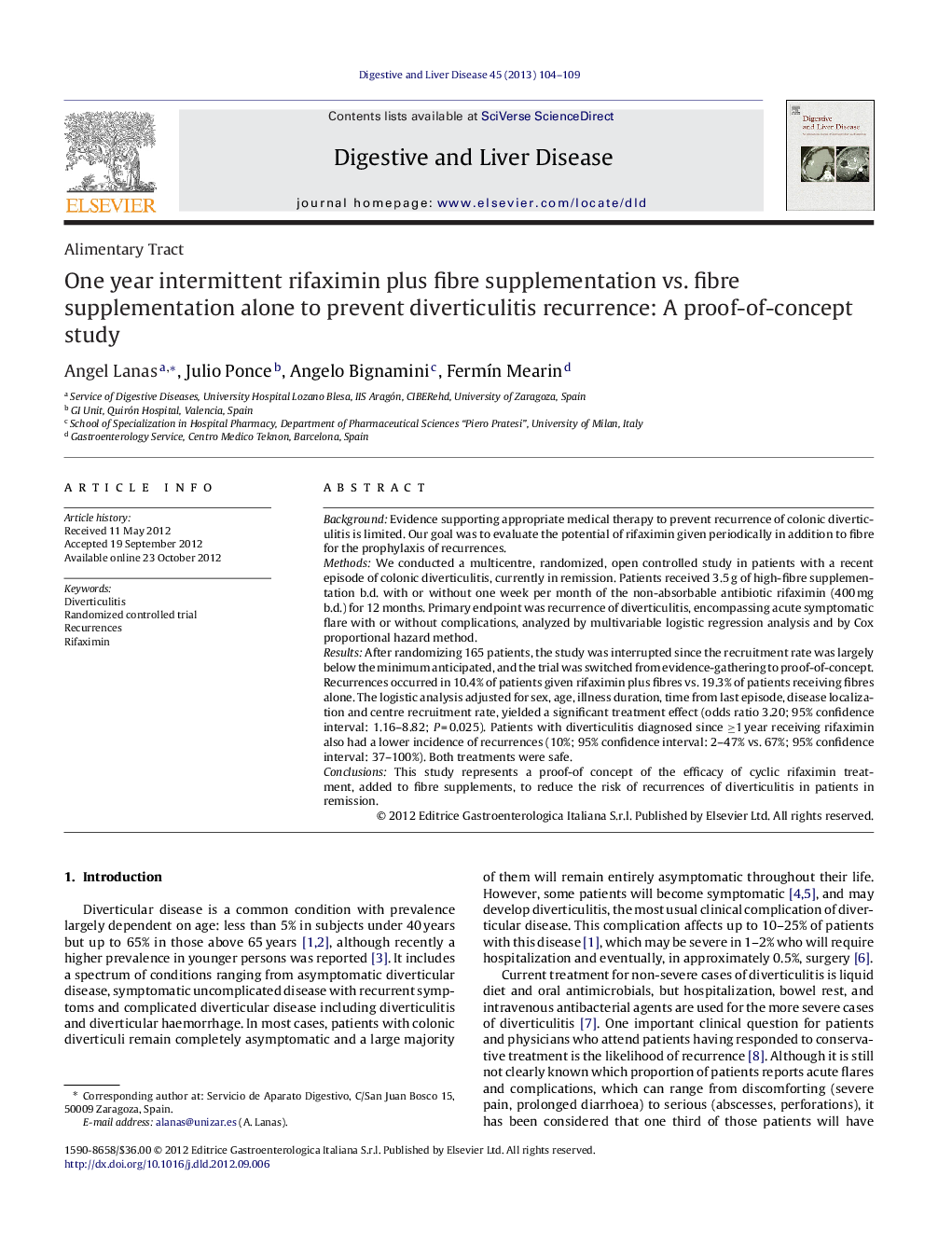| Article ID | Journal | Published Year | Pages | File Type |
|---|---|---|---|---|
| 3262451 | Digestive and Liver Disease | 2013 | 6 Pages |
BackgroundEvidence supporting appropriate medical therapy to prevent recurrence of colonic diverticulitis is limited. Our goal was to evaluate the potential of rifaximin given periodically in addition to fibre for the prophylaxis of recurrences.MethodsWe conducted a multicentre, randomized, open controlled study in patients with a recent episode of colonic diverticulitis, currently in remission. Patients received 3.5 g of high-fibre supplementation b.d. with or without one week per month of the non-absorbable antibiotic rifaximin (400 mg b.d.) for 12 months. Primary endpoint was recurrence of diverticulitis, encompassing acute symptomatic flare with or without complications, analyzed by multivariable logistic regression analysis and by Cox proportional hazard method.ResultsAfter randomizing 165 patients, the study was interrupted since the recruitment rate was largely below the minimum anticipated, and the trial was switched from evidence-gathering to proof-of-concept. Recurrences occurred in 10.4% of patients given rifaximin plus fibres vs. 19.3% of patients receiving fibres alone. The logistic analysis adjusted for sex, age, illness duration, time from last episode, disease localization and centre recruitment rate, yielded a significant treatment effect (odds ratio 3.20; 95% confidence interval: 1.16–8.82; P = 0.025). Patients with diverticulitis diagnosed since ≥1 year receiving rifaximin also had a lower incidence of recurrences (10%; 95% confidence interval: 2–47% vs. 67%; 95% confidence interval: 37–100%). Both treatments were safe.ConclusionsThis study represents a proof-of concept of the efficacy of cyclic rifaximin treatment, added to fibre supplements, to reduce the risk of recurrences of diverticulitis in patients in remission.
